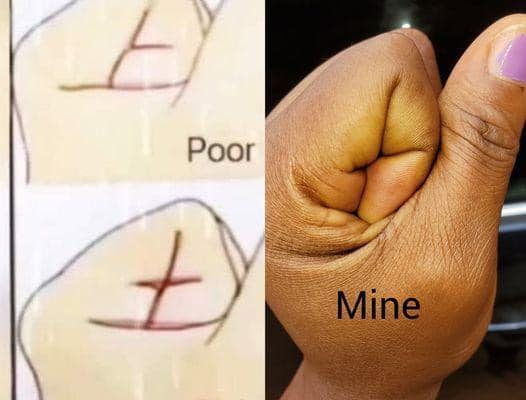
Palmistry Overview: Palmistry, also known as chiromancy, is the practice of interpreting the lines, shapes, and markings on the hands to predict someone’s character or fortune. The idea of specific lines on the palm indicating wealth, luck, or other traits is a long-held belief in many cultures. The top half of the image shows a closed palm with a crossed line near the thumb, labeled “Poor.” This suggests that, according to the belief shown, certain markings on the hand correlate with a lack of financial wealth.
The bottom half shows a different configuration of crossed lines, labeled “Rich.” The deeper and more distinct cross on this palm indicates that this pattern is linked to financial success or wealth in this interpretation.
Cultural Significance:
Palm lines have been interpreted differently across various cultures and systems of belief. Some claim that certain configurations of lines, such as crosses or specific intersections, can reflect a person’s destiny, including their financial future.
In this case, the image humorously or symbolically suggests that one’s financial status is written in the lines of their hand, a notion commonly found in folk wisdom.
Skepticism and Modern Interpretation: Although palmistry has historical roots, it is viewed skeptically by science. Many modern thinkers regard it as pseudoscience or a form of entertainment rather than a factual way to predict someone’s financial future.



